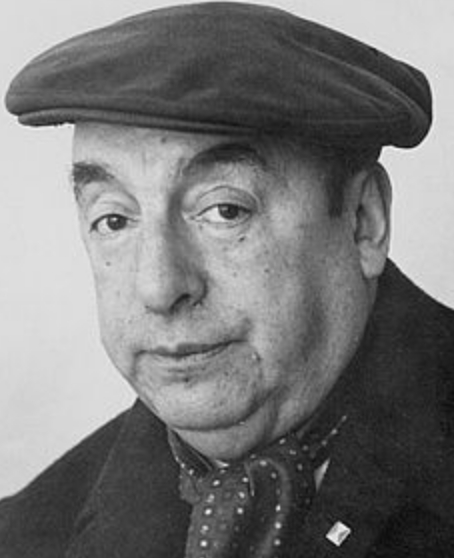On this date in 1904, Ricardo Eliécer Neftalí Reyes Basoalto was born in Parral, Chile. His first poems were published under the pen name Pablo Neruda in 1918 in a Santiago magazine. His first widely read book, Twenty Love Poems and a Desparate Song was published in 1924. In 1927 he was made Chilean honorary consul to Rangoon, Burma (now Myanmar), in honor of his accomplishments in poetry.
His work as an official representative of Chile continued in Spain, where he became involved with the republican cause. He was recalled to Chile in 1937. In 1945 he joined the Communist Party and was elected to the Senate, fleeing the country three years later when the party was banned by the government.
Neruda continued to travel the world, first in exile and after he was allowed to return to Chile in 1952. During this period, much of his poetry was political in nature, including the famous “Canto General” (General Song), an epic of the New World, which connected the Americas’ origins and conquests to their current political state.
Neruda was a confirmed communist and was awarded the Stalin Peace Prize and Lenin Peace Prize in 1953. He stated some philosophical views in his poetry, describing himself in his poem “A Dog Has Died” as “I, the materialist, who never believed / in any promised heaven in the sky / for any human being.” He ran for president of Chile in 1969 but withdrew in favor of Salvador Allende. He was diagnosed with cancer in 1970 but went on to represent Chile as ambassador to France.
In 1971 he received the Nobel Prize in Literature. He survived Allende by only 12 days. Eight books of his poetry, which he had planned on publishing on his 70th birthday, were published posthumously. D. 1973.

